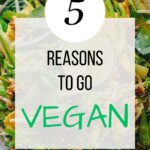A vegan diet is a type of plant-based diet that excludes all animal products, including meat, dairy, eggs, and honey. People choose to follow a vegan diet for a variety of reasons, including ethical concerns about animal cruelty, environmental concerns about the impact of animal agriculture on the planet, and health benefits such as weight loss and reduced risk of certain diseases.
Following a vegan diet can be healthy and nutritionally balanced if it is properly planned and includes a variety of foods from all food groups. Some key nutrients to pay attention to on a vegan diet include protein, iron, calcium, vitamin B12, and omega-3 fatty acids.
Protein is an essential nutrient that is important for building and repairing tissues, making enzymes and hormones, and supporting immune function. It is found in a variety of plant-based sources, including beans, lentils, chickpeas, nuts, seeds, and whole grains. To ensure adequate protein intake on a vegan diet, it is important to include a variety of protein-rich foods and try to eat protein at every meal.
Iron is a mineral that is important for carrying oxygen to the body’s cells and tissues. It is found in a variety of plant-based sources, including beans, lentils, tofu, nuts, seeds, and fortified foods such as cereals and plant-based milks. To help increase the absorption of iron on a vegan diet, it is important to pair iron-rich foods with foods high in vitamin C, such as citrus fruits and bell peppers.
Calcium is a mineral that is important for building and maintaining strong bones and teeth. It is found in a variety of plant-based sources, including leafy green vegetables, nuts, seeds, and fortified foods such as plant-based milks and tofu. To ensure adequate calcium intake on a vegan diet, it is important to include a variety of calcium-rich foods and consider taking a calcium supplement if necessary.
Vitamin B12 is a nutrient that is important for nerve function, brain function, and the production of red blood cells. It is found almost exclusively in animal-derived foods, so it can be difficult to get enough on a vegan diet. To ensure adequate vitamin B12 intake on a vegan diet, it is important to include fortified foods such as plant-based milks and cereals, or consider taking a vitamin B12 supplement.
Omega-3 fatty acids are a type of polyunsaturated fat that is important for brain function and heart health. They are found in a variety of plant-based sources, including flaxseeds, chia seeds, walnuts, and algae-based supplements. To ensure adequate omega-3 intake on a vegan diet, it is important to include a variety of omega-3-rich foods and consider taking an algae-based omega-3 supplement.
In addition to these key nutrients, it is also important to focus on whole, unprocessed foods on a vegan diet, such as fruits, vegetables, whole grains, legumes, and nuts. These foods are high in fiber, vitamins, minerals, and antioxidants, and can help to support overall health and prevent chronic diseases such as heart disease, diabetes, and cancer.
While a vegan diet can be healthy and nutritionally balanced, it is important to carefully plan and pay attention to key nutrients to ensure that all of your nutritional needs are met. If you are considering following a vegan diet, it is a good idea to speak with a registered dietitian or healthcare provider to help you plan a balanced and nutrient-rich diet.
Lance has been passionate about the plant-based diet and we have been following a whole food plant-based diet for over 5 years. We focus on health, natural healing, weight management, animal rights, and the health of the planet and environment by focusing on whole plant-based foods and sustainable practices.
Learn more at the About Me page and follow on social media at the links below.




